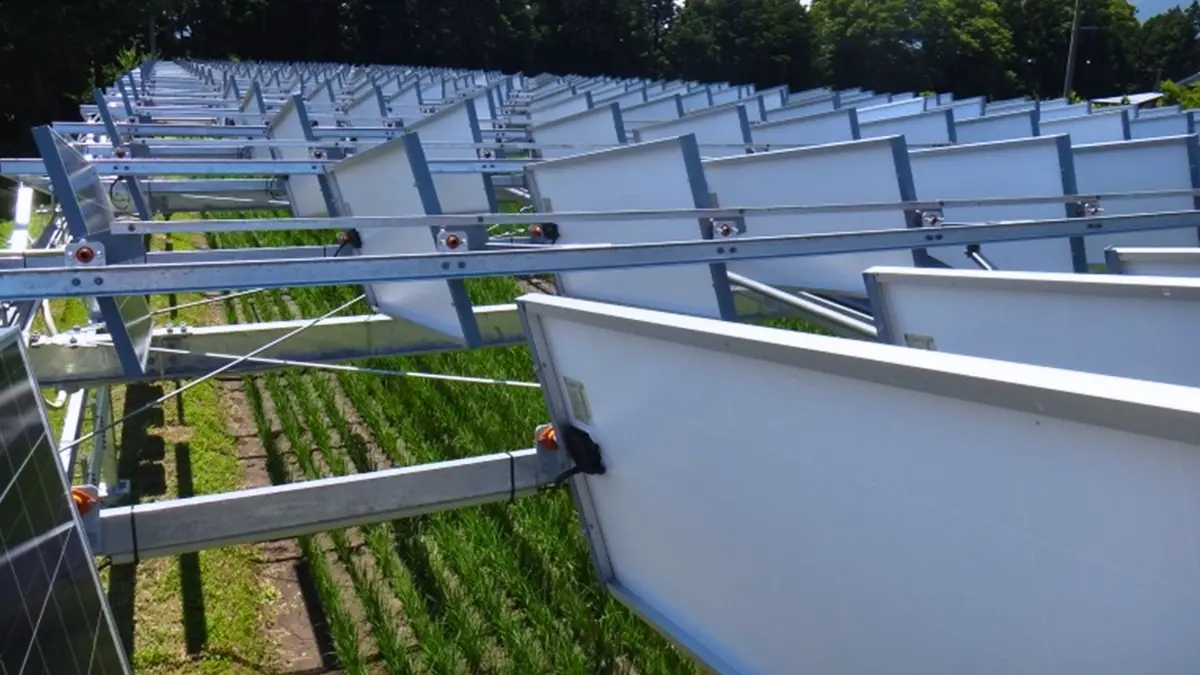Japan may have found a way to harvest renewable electricity without giving up valuable farmland.
A University of Tokyo study, recently published in the Journal of Photonics for Energy, demonstrates that a dual-axis sun-tracking photovoltaic (PV) array mounted three meters above a rice paddy can generate competitive power while preserving high-quality rice yields.
The pilot, located in Miyada-mura, Nagano Prefecture, suggests agrivoltaics could help Japan expand solar capacity even where arable land is scarce.
Tracking sunlight without starving the crop
Researchers installed solar panels capable of adjusting their tilt and orientation daily and seasonally. During planting and early growth, the system favored angles that let more light reach the paddies.
In the off-season, it shifted to maximize generation. Over two growing seasons, the field under the panels produced 75 percent of neighboring paddies’ rice output in the first year and 85 percent in the second, after refinements reduced shading.
Grain quality met Japan’s top grade both years, indicating that careful light management can protect both yield and quality.
The array’s power performance was equally encouraging. It produced nearly 44,000 kilowatt-hours per year, an efficiency of 961.4 kWh per installed kilowatt, on par with comparable European agrivoltaic projects.
Assuming a 20-year operating life and no government subsidy, researchers calculated a levelized electricity cost of about 27 yen per kilowatt-hour, roughly matching Japan’s residential rate at the time of the study.
Land constraints push innovation
Japan’s mountainous terrain limits flat, open sites for large solar farms, intensifying the tension between renewable energy build-out and domestic food production.
Conventional utility-scale solar requires way too much land. Estimates suggest that a one-megawatt array typically covers four to five acres, and concentrating solar facilities need even more.
By contrast, a coal or natural-gas plant can deliver 500 MW on fewer than 100 acres, so scaling solar to similar outputs can demand thousands of acres and risk habitat loss or fragmentation.
Agrivoltaics offers a compromise by stacking land uses, growing food, and generating power on the same plot.
Tokyo’s pilot arrives as the national government accelerates solar investment. Officials also aim to deploy 100 megawatts of ultra-thin panels, less than one millimeter thick, by 2027 to improve energy security and cut reliance on imported fossil fuels.
Fine-tuning for the future
Researchers plan to test artificial-intelligence control systems that adjust panel angles in real time as sunlight, weather, and crop growth change. They are also exploring semi-transparent or higher-efficiency PV materials that admit more visible light to plants while capturing a greater share of the solar spectrum for power.
If such improvements raise yields closer to conventional paddies without sacrificing electricity, agrivoltaics could become a mainstream option for nations grappling with land scarcity.
For Japan, where the government expects solar to shoulder a growing share of the energy mix by 2030, the findings provide a data-driven case for scaling agrivoltaic projects.
Beyond energy metrics, the approach could bring economic resilience by giving farmers a second revenue stream and helping rural areas participate in the clean-energy transition.
The University of Tokyo team argues that pairing panels with paddies is no zero-sum game, and with smart design, the countryside can feed the grid and the nation’s tables.
Source - https://interestingengineering.com













